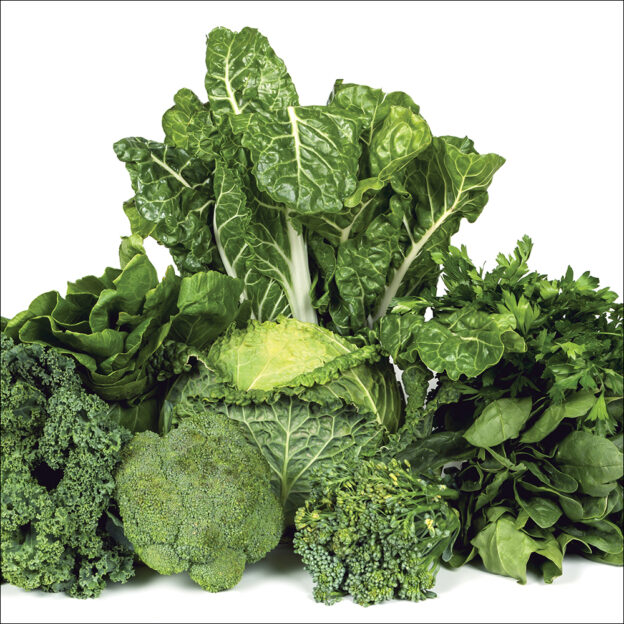Not only is avocado an exceptionally dense source of good fats, vitamins, and antioxidants, but it offers protection against a variety of degenerative diseases.
Table of Contents
By GreenMedInfo Research Group

Avocados are a simple and satisfying way to enjoy more dietary nutrients, such as fiber, copper, folate, potassium, and vitamins K, E, and C. Considered a seed fruit, avocados are unique in that nearly eighty percent of their total calories come from fat, a significantly higher percentage than is found in other fruits. Nutritionally dense, one-third of a medium-size avocado has eighty calories and the recommended daily allowance of fat for most Americans.
The avocado tree is thought to have originated in Mexico, spreading throughout Central and South America as far back as 10,000 years ago. Varieties of the tree are now grown in Mediterranean and tropical climates around the globe. Besides the delicious boost they provide to your daily nutrient intake, this fatty fruit touts an impressive catalog of scientifically backed health benefits.
Here are four of the top reasons to add avocados to your diet:
Protection from Cardiovascular Disease
The high-fat avocado is among the most heart-friendly foods and can help protect against cardiovascular disease. A 2012 study conducted at UCLA Center for Human Nutrition compared the effects of eating a plain hamburger versus a hamburger with a large slice of avocado.1
Healthy subjects were fed each of these two meals on different occasions, after which researchers measured the constriction of blood vessels (vasoconstriction)—indicating states of high blood pressure. The plain hamburger meal resulted in significant vasoconstriction, demonstrating an unhealthy effect on blood pressure, whereas the avocado-topped hamburger meal had no effect on blood pressure.
Next, researchers analyzed blood cells and found two distinct markers for inflammation after the hamburger-only meal, while these markers were noticeably absent in the blood after the meal including avocado.
Finally, researchers found that post-meal fatty triglycerides—high concentrations of which indicate an elevated risk of stroke—did not rise in the avocado group despite the additional fat, whereas these markers did increase in the plain hamburger group. Researchers concluded that eating avocado can have beneficial anti-inflammatory and vascular health effects.
In a 2015 study, a group of researchers recorded the effects of three different diets on forty-five overweight or obese participants with high cholesterol (LDL-C). Participants consumed one of three diets: a lower-fat diet (twenty-four percent fat); a moderate-fat diet (thirty-four percent fat) including one fresh Hass avocado (136 g) per day; or a moderate-fat diet (thirty-four percent fat) using high oleic acid oils to match the fatty acid content of one avocado.2
All three diets provided similar foods—save for the difference in fats—and were matched for macronutrients and fatty acid content. Compared with baseline measurements taken at the start of the study, the reduction in LDL-C and HDL cholesterol was greater on the avocado diet than on either of the other two diets.
Furthermore, only the avocado diet significantly decreased LDL particle number, small dense LDL cholesterol, and the ratio of LDL/HDL from baseline. Researchers concluded that the inclusion of one avocado per day is a good way to lower cholesterol as part of a moderate-fat, cholesterol-lowering diet. “Our results demonstrate that avocados have beneficial effects on cardio-metabolic risk factors that extend beyond their heart-healthy fatty acid profile.”
Helps Prevent Diabetes
Type 2, or adult-onset diabetes, is widely recognized as a disease of lifestyle, with diet-based interventions accepted as the most effective remedy. Type 1 diabetes, on the other hand, is characterized by the latent inability of the body to produce enough insulin. As such, a Type 1 diabetic inherits or develops the condition due to damaged or destroyed pancreatic beta cells—the cells responsible for insulin production.
Unlike Type 2 diabetes where the body becomes resistant to its own insulin, Type 1 diabetes can onset due to one or more potential causes: autoimmune issues, bacterial or viral infections, incompatible foods in the diet, and chemical exposures.
While Type 1 diabetes requires lifelong treatment, accumulating scientific research is validating the body’s innate capacity to heal from so-called incurable diseases when properly supported. The discovery of the beta cell regenerative potential of certain foods and natural compounds has the potential to improve traditional diabetes treatments and perhaps one day eradicate the disease.
Unsurprisingly, avocados possess this cellular rejuvenation potential.
Sometimes called “alligator pears” due to their dark, bumpy skin and teardrop shape, avocados produce large seeds that contain numerous medicinal properties. While the seed itself is not typically consumed, it contains concentrated amounts of potent antioxidants and phytochemicals. In 2007, a group of researchers investigated the effects of avocados on blood glucose levels. The study found that when fed to both diabetic and non-diabetic rats, avocado seed extract significantly reduced blood sugar, with the greatest impact observed in diabetic rats. It produced an overall normalizing effect on blood sugar.3
Potentially more exciting is the effect that was observed on pancreatic islet cells. Daily supplementation with avocado seed extract had a restorative and overall protective effect on pancreatic islet cells (where the important beta cells that produce insulin reside). Researchers concluded that consuming avocado seed extract “may contribute significantly to the reduction of blood glucose levels and can be useful in the treatment of diabetes.”
For individuals struggling with diabetes, adding avocado to the diet may yield further benefits. A 2015 study concluded that avocado oil can be used to reduce oxidative stress on the liver—a factor that frequently accompanies diabetes and traditional diabetic treatments.
Cancer Prevention
Research shows avocados have therapeutic properties that can help prevent cancer. Specifically, they are packed with phytochemicals—biologically active compounds that play a vital role in helping resist the onset of disease. Phytochemicals also play an important role in cancer prevention, a fact that was well-illustrated by the 2007 study investigating the chemopreventive properties of avocado fruit.4
This research showed that when extracted and added to cultures of precancerous and cancer cell lines, avocado fruit phytochemicals were able to arrest the cancer cell growth cycle, inhibit growth, and induce apoptosis—the death of pre-cancer and cancer cells.
A 2005 study focused on another super-nutrient found in avocados: carotenoids (yellow, orange, and red organic pigments found in various plants, algae, and bacteria). Carotenoids are linked with cancer-preventive properties, prompting researchers to isolate these nutrients in avocados.5
The California Hass avocado was selected for this study due to its yellow-green color with associated high levels of lutein (Latin for “yellow”) and related carotenoids, such as alpha-carotene and beta-carotene. Researchers also noted high levels of therapeutic vitamin E in the variety.
An acetone extract of avocado was produced containing these various carotenoids and tocopherols and introduced to prostate cancer cells in-vitro. Control groups from the same cell lines were incubated with an extract of lutein-only. Results showed that incubating cancer and precancer cells with avocado extract led to arrest of cancer growth in the cells.
An additional observed benefit from avocado extract was an increase in healthy cell protein expression. Lutein alone did not reproduce these effects on cancer cell proliferation. Researchers speculated that the high amounts of monounsaturated fat in them might help the body absorb the bioactive carotenoids into the bloodstream better than when supplementing with carotenoids in isolation.
Prevent and Relieve Arthritis
As noted by researchers at the Musculoskeletal Research Center at University of California-Davis, osteoarthritis is a “painful and life-altering disease that severely limits the daily activities of millions of Americans and ranks as one of the most common causes of disability in the world.”
Researchers are studying breakthrough treatment options for arthritis since life-extension practices and rising obesity rates equal more pain and rising costs in the nation’s future. Ongoing research is focused on the therapeutic potential of a dietary supplement called ASU, or avocado/soybean unsaponifiables. ASU has been shown to be effective at slowing the progression of osteoarthritis by inhibiting molecules and pathways implicated in the condition.
Although this potent dietary intervention is not yet mainstream, researchers have been demonstrating the effectiveness of this avocado-based supplementation for more than two decades. In fact, a 1997 review was published on the efficacy and safety of avocado/soybean unsaponifiables in the treatment of symptomatic osteoarthritis of the knee and hip.6
The multicenter, randomized, double-blind, placebo-controlled trial was aimed at reducing the need for pharmaceutical drugs often included in the treatment protocol for this progressive disease. Participants were given one capsule of ASU or a placebo for ninety days. During the first forty-five days, patients in both groups were also given one of seven predefined NSAIDs (non-steroidal anti-inflammatory drugs).
The primary efficacy criteria for this study were the percentage of patients who went back to taking NSAIDs after forty-five days, and the delay before re-intake. Results clearly indicated that after six weeks, the patients taking ASU had less need for NSAID pain relief when compared with the placebo group. ASU consumption also had a beneficial effect on functional movement, with the experimental group showing significantly greater overall improvement compared to the placebo group.
These benefits are equally promising for pets. A 2009 study demonstrated similarly positive results when using ASU to treat arthritis in dogs. Mixed-breed dogs with osteoarthritis were given 10 mg/kg per day of ASU for eight weeks. Results showed that treatment with avocado/soybean unsaponifiables can reduce the development of early osteoarthritic cartilage and bone lesions in the cohort with osteoarthritis.7
Ultimately, avocados are a versatile, nutritious, and delicious addition to your diet. Enjoy as a traditional guacamole or a sweet dish—the possibilities are endless.
—
Well Being Journal adapted the above article from the previously published original at greenmedinfo.com titled “The Top 4 Healing Properties of Avocados,” June 7, 2018.
References
- Zhaoping Li, et al. “Hass avocado modulates postprandial vascular reactivity and postprandial inflammatory responses to a hamburger meal in healthy volunteers.” Food Funct. 2012 Nov 29.
- Li Wang, et al. “Effect of a moderate fat diet with and without avocados on lipoprotein particle number, size and subclasses in overweight and obese adults: a randomized, controlled trial.” J Am Heart Assoc. 2015 Jan 7 ;4(1):e001355.
- Do Edem, et al. “Effect of aqueous extracts of alligator pear seed (Persea americana mill) on blood glucose and histopathology of pancreas in alloxan-induced diabetic rats.” Transplantation. 2007 Jul 27;84(2):173-9.
- Haiming Ding, et al. “Chemopreventive characteristics of avocado fruit.” Semin Cancer Biol. 2007 Oct;17(5):386-94.
- Qing-Yi Lu, et al. “Inhibition of prostate cancer cell growth by an avocado extract: role of lipid-soluble bioactive substances.” J Nutr Biochem. 2005 Jan;16(1):23-30.
- F Blotman, et al. “Efficacy and safety of avocado/soybean unsaponifiables in the treatment of symptomatic osteoarthritis of the knee and hip. A prospective, multicenter, three-month, randomized, double-blind, placebo-controlled trial.” Rev Rhum Engl Ed. 1997 Dec;64(12):825-34.
- Christelle Boileau, et al. “Protective effects of total fraction of avocado/soybean unsaponifiables on the structural changes in experimental dog osteoarthritis: inhibition of nitric oxide synthase and matrix metalloproteinase-13.” Arthritis Res Ther. 2009;11(2):R41. Epub 2009 Mar 16.





